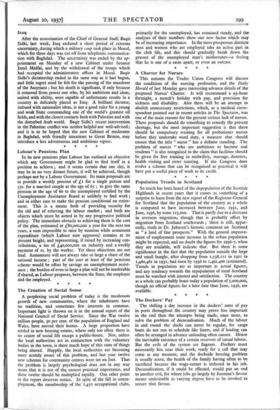Iraq After the assassination of the Chief of General Staff,
Baqir Sidki, last week, Iraq endured a short period of extreme uncertainty, during which a military coup took place in Mosul, which for three days was cut off from telephonic communica- tion with Baghdad. The uncertainty was ended by the ap- pointment on Monday of a new Cabinet under Senator Jamil Midfai, and by the withdrawal of the troops which had occupied the administrative offices in Mosul. Baqir Sidki's dictatorship ended in the same way as it had begun, and little regret need be felt for the passing of the murderer of the Assyrians ; but his death is significant, if only because it removed from power one who, by his ambitions and ideas, united with ability, were capable of unfortunate results in a country as delicately placed as Iraq. A brilliant dictator, imbued with nationalist ideas, is not a good ruler for a young and weak State commanding one of the world's greatest oil fields, and with the closest contacts both with Palestine and with the disturbed Arab world. Baqir Sidki's recent intervention in the Palestine conflict was neither helpful nor well-advised; and it is to be hoped that the new Cabinet of moderates in Baghdad, with friendly intentions to Great Britain, may introduce a less adventurous and ambitious regime.






































 Previous page
Previous page